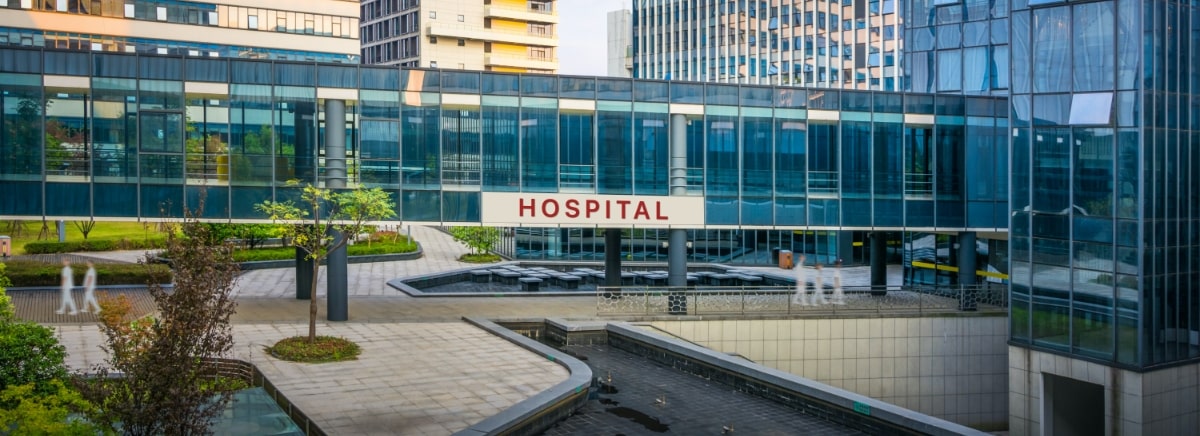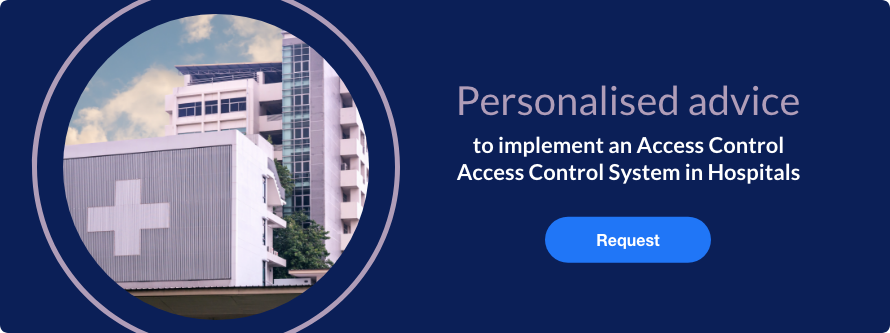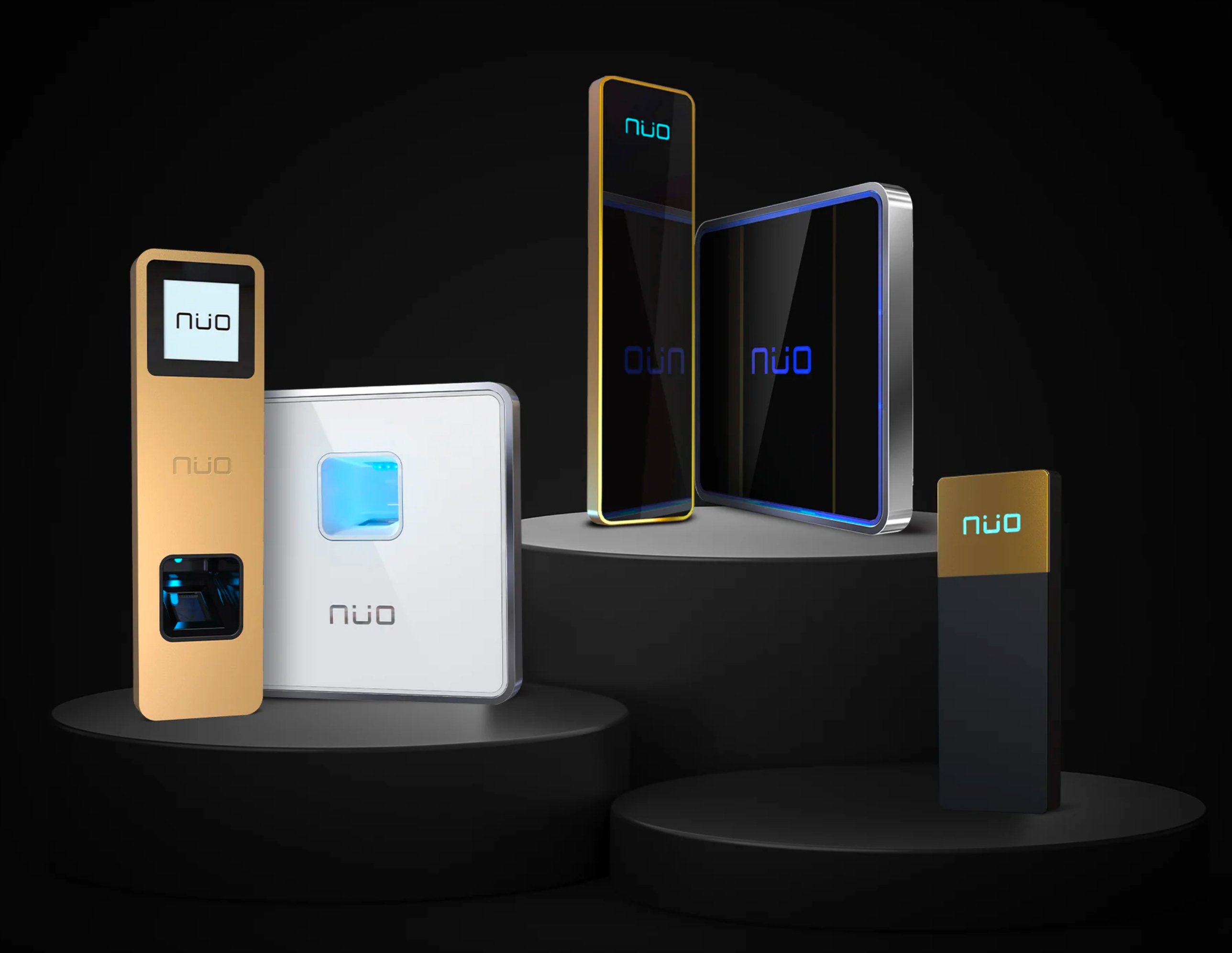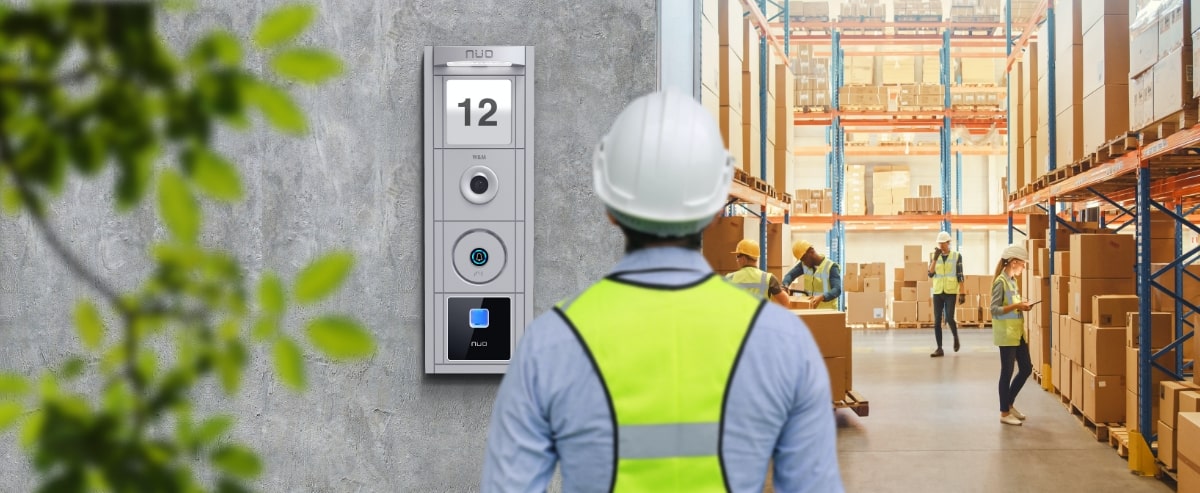According to a recent study of the healthcare industry, global demand for connected devices in the healthcare sector is expected to grow at a rate that is almost 2 percentage points higher than the average for the overall smart buildings market, with a compound annual growth rate (CAGR) of 13.9% between 2018 and 2023. The study concludes that hospitals are increasingly choosing to implement software which analyses data from connected equipment in order to optimise decision-making and streamline day-to-day operations. The common goal is to "improve patient care and comfort while increasing operational efficiency.”
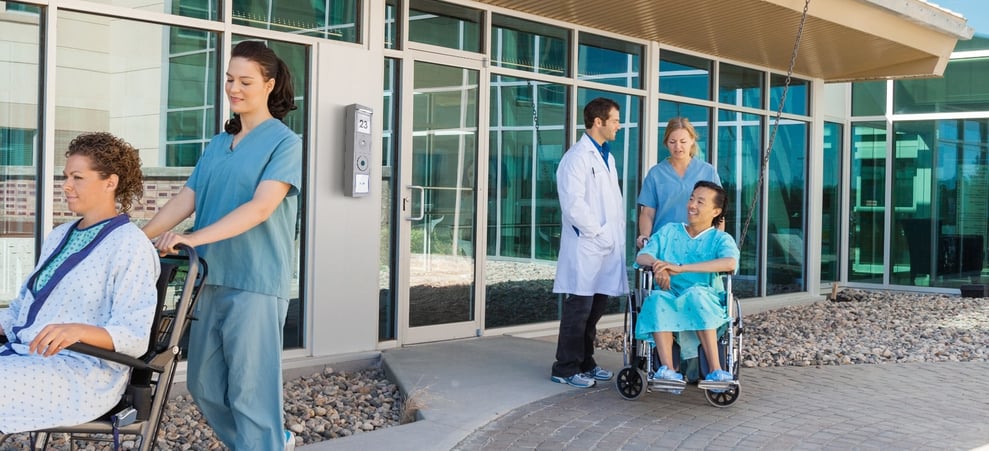
Due to their design, volume and the type of assets they contain, hospitals are among the most complex buildings in terms of the security of the facilities, equipment, employees and, above all, patients. One of the greatest challenges in terms of hospital security has to do with ensuring the security of the premises without hindering the hospital's daily operational dynamics, where time is often a critical factor.
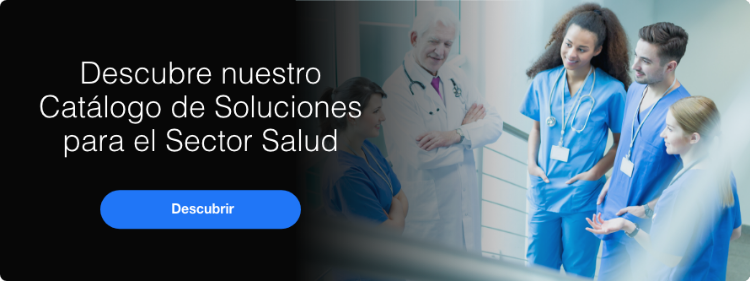
In hospitals, ensuring comprehensive security for employees, patients and assets is a top priority..
Accordingly, three factors play a key role when it comes to the security of a hospital:
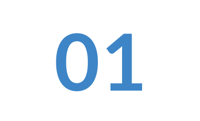 |
Hospitals are set up to provide care for people 24 hours a day, 365 days a year. |
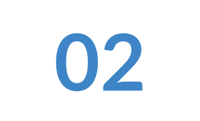 |
They contain highly sensitive areas to which access must be restricted and monitored at all times. |
 |
High value equipment, information and facilities are at constant risk of damage, tampering and misuse by unauthorised people. |
Hospital security therefore presents a major challenge. Depending on its size, the number of entry points and the variety of user profiles, such as patients, visitors, doctors, paramedics and administrative staff, a hospital must harmoniously integrate operational fluidity with minimum technical disruptions and maximum efficiency at all times.
In hospitals, access control is crucial. The reason is simple. A hospital needs to operate smoothly and optimally, without compromising on security.
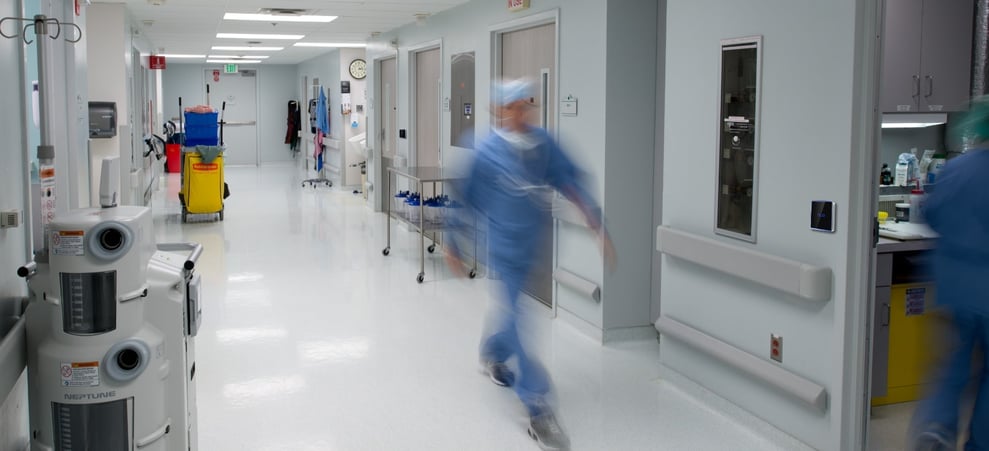
Given the highly sensitive nature of the information that a hospital handles, data protection requires that each hospital or healthcare centre contains a filing area which is closed off to the public and where, if possible, all content is digitised and encrypted in an incident-proof database, with server rooms which are subject to a high level of security.
Equally essential is the protection of hazardous materials - such as medicines and drugs, surgical equipment, disposable items, injectables and needles - which must be stored in a separate area which is closed off to the public.
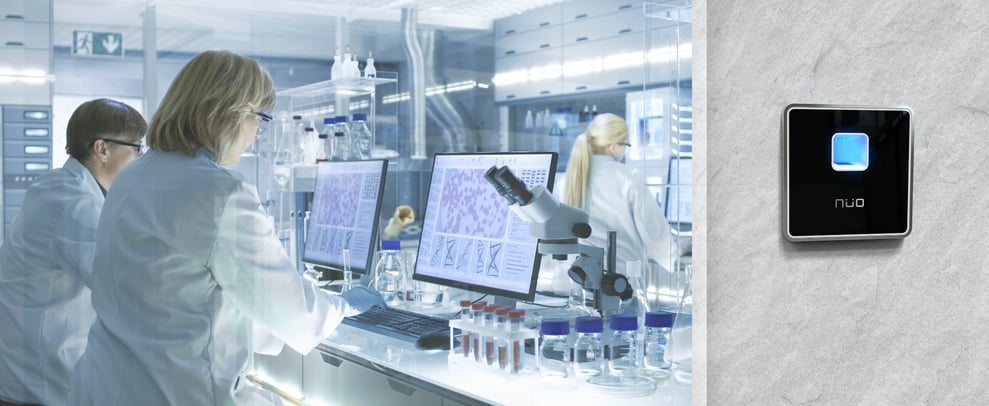
The fact is that hospitals are complex facilities, each of which is unique and has its own particular characteristics and security requirements. It is therefore not possible to standardise hospital security and achieve efficient results without affecting the flow of operations. Consequently, the key is to implement security systems that are 100% adaptable and can be customised according to the needs of each centre. Another noteworthy issue is that in hospitals, being high security centers, the use of biometrics is recommended, specifically, the use of biometric fingerprint readers, as explained in this article.
Why implement smart access control systems for hospital security?
NÜO has been providing user-friendly security management for people and vehicles in healthcare environments for years. Each user is identified by means of a high-security card, a mobile ID or biometric data and is assigned a security profile, determining what areas they can gain access to, how and when, and access is restricted according to time, date, shifts and holidays, by zones, etc.

Through a single control centre, with real-time information and customised reports, you can decide who can access each space, when and how:
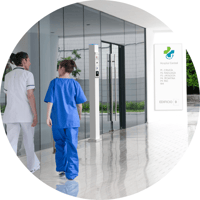 |
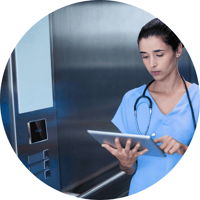 |
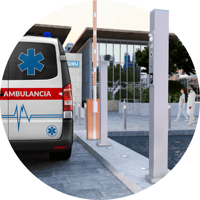 |
| 01. Access from the outside | 02. Lift controls | 03. Parking and access for vehicles and ambulances |
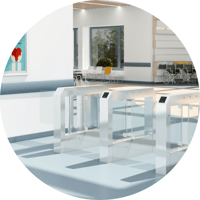 |
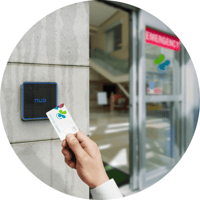 |
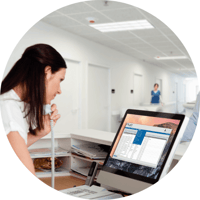 |
| 04. Turnstiles | 05. Access to the Emergency Room | 06. Visitor and subcontractor management |
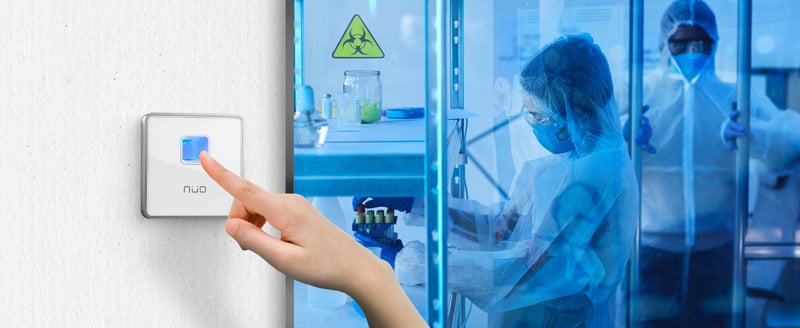 |
| 07. Control of specially protected areas Operating rooms, sensitive material storage, pharmacy area, laboratories, medical records archives, ICU, psychiatric wards, infectious disease units, radiology, morgue... |
NÜO makes it possible to restrict and prioritise access to special areas, to oversee the entry and exit of vehicles and people, and to reinforce security in special areas, without impairing or hindering healthcare activities.
NÜO's high security and access control system, allows your hospital to operate smoothly and optimally, without compromising on security..
With NÜO solutions, you can identify and analyse each centre, taking into consideration::
 |
Entry and exit points for patients, visitors and private individuals, looking at general, emergency, laboratory or ancillary service entrances. |
| Entry and exit points for the centre's medical, paramedical, technical and administrative staff. | 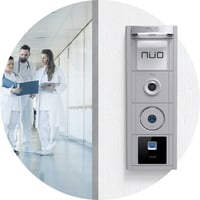 |
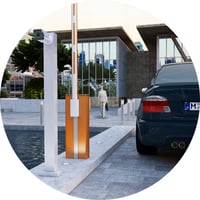 |
Entry and exit of private vehicles, emergency vehicles and vehicles belonging to employees and suppliers of goods or services. |
| Identification of areas of restricted access, controlled access and/or authorised access. | 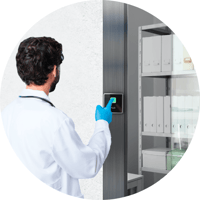 |
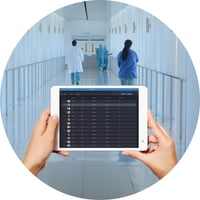 |
Identification and categorisation of users into hierarchical levels, authorisation according to schedules and shifts and areas of activity for medical, paramedical, technical, operational and administrative personnel. |
| Provide protection by using biometric access controls, in conjunction with advanced security features such as supervisor mode, for shelves, display cabinets, storerooms, crates and storage for drugs, medical materials, instruments, equipment or medical/surgical supplies. | 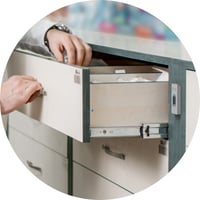 |
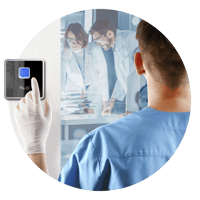 |
Secure areas with multispectral biometric readers that can identify fingerprints even when fingers are dirty, wet, cut or covered by latex, vinyl or nitrile gloves. Fingerprint readers ensure that only identified personnel can gain access, denying access to unauthorised persons and eliminating the risk of anyone gaining access with stolen, borrowed or duplicate IDs. |
| Restrict unauthorised personnel from entering critical areas of the hospital, even if they are employees, and report failed access attempts with the person's identity. For example, if an employee who is not authorised to access the pharmacy area tries to enter it, you'll be able to see the unauthorised attempt in the system. | 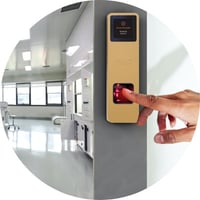 |
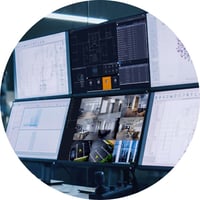 |
Coordination with physical security points, CCTV and internal security departments. All of these components are crucial when it comes to planning and designing a customised security and access control system, adapted to the hospital's unique requirements. |
Global communication with video intercoms
Another highly innovative solution with many potential applications in hospitals involve video intercoms. Having an intercom at an access point simplifies communications in a business and also brings many benefits for hospitals:
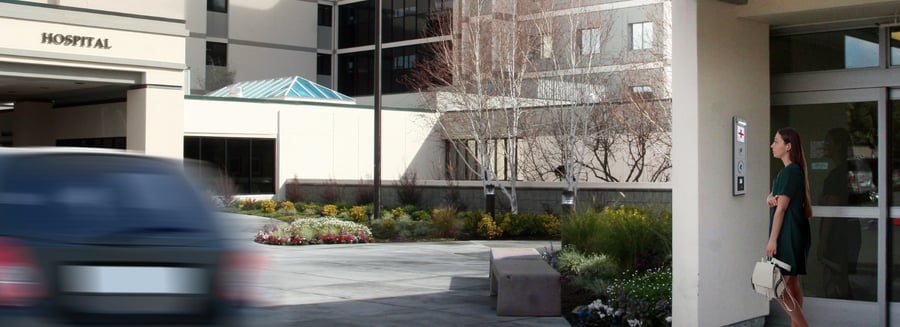
- External visitors who need to access a restricted access point will be able to seek entry by means of these video intercoms.
- Visitors can be granted access because the video intercom is connected to a state-of-the-art video console from where, with the highest audio and video quality, it will be possible to see and talk to the person seeking to enter and to open the door if necessary.
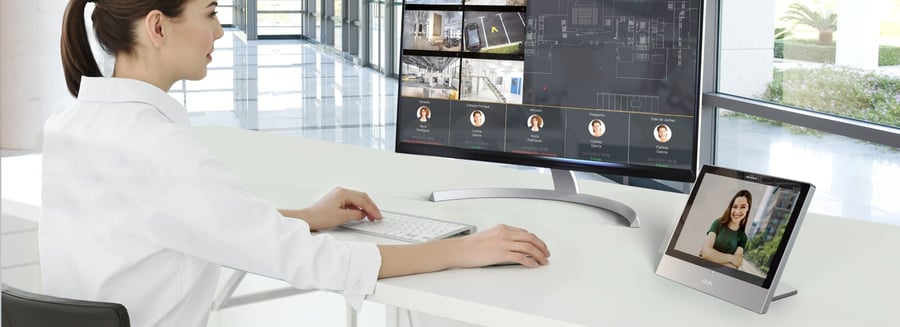
- In an emergency, communication via these intercoms facilitates a rapid response. These help points are strategically located so that communication is integrated throughout the building, with a control centre providing overall supervision.
- These displays provide loud and clear communication, with adequate volume levels and clean sound transmission, even if the environment is noisy. The image will always be well defined.
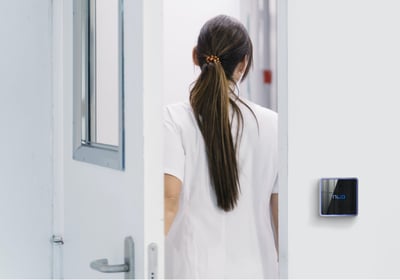 In conclusion, access control systems not only act as deterrents and safeguards, but also protect the entire building and the assets and people they contain. They prevent unauthorised people from accessing restricted areas even when they belong to the centre, they provide detailed information on potential break-in attempts and they manage security in a systemic, synergistic and holistic manner.
In conclusion, access control systems not only act as deterrents and safeguards, but also protect the entire building and the assets and people they contain. They prevent unauthorised people from accessing restricted areas even when they belong to the centre, they provide detailed information on potential break-in attempts and they manage security in a systemic, synergistic and holistic manner.
NÜO Access Control Systems for hospitals represent an efficient, secure and integrated method of protecting a hospital's facilities, materials, goods and people without restricting its operations and without slowing down its activity for a single second.
EAs we can see, access controls are a vital part of the functioning of the 21st century hospital.
Contact one of our consultants and protect your centre with the most innovative, efficient and versatile security system on the market today. tu centro con la más innovadora, eficiente y versátil seguridad del mercado actual.
Escrito por: NÜO Planet
Categorías: Health Sector
